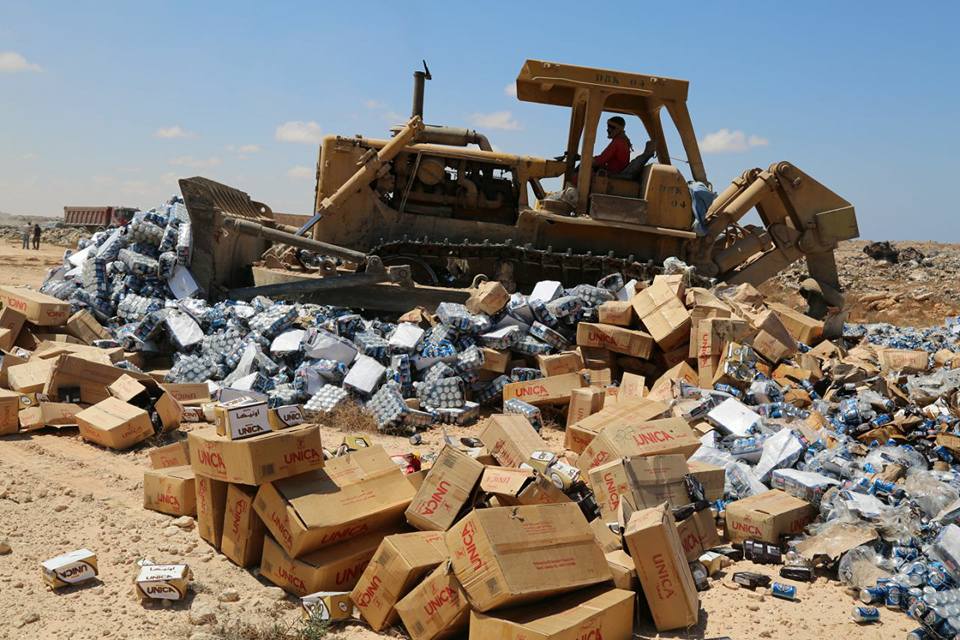By Chris Stephen.

London, 7 July 2017:
Oil traders are calling it “the Libya Paradox”: despite civil war, terrorism and three competing governments, Libya has somehow tripled oil production in just 12 months, closing in on a million barrels a day.
The National Oil Corporation (NOC), which manages oil production, won’t comment on whether the one million figure has been reached, probably because output see-saws on a daily basis. But it is clear the industry is in the grip of a major recovery.
This time last year, production was 290,000 barrels a day (bpd) a fraction of the 1.6 million bpd the country enjoyed before the 2011 revolution.
At the time, attention was on the two key ports, Sidra, the largest export terminal and nearby Ras Lanuf, the biggest refinery. Together they accounted for 47 percent of exports in regular times. But these have not been regular times. The ports were held by the Petroleum Facilities Guard (PFG), a militia led by Ibrahim Jadhran, who wanted payment before letting them function.
In July last year the UN-backed Presidency Council (PC) in Tripoli agreed to make the payment and it looked like oil would finally flow from the Sirte Basin, home to two-thirds of the country’s production.
Not-so-fast, said NOC chief Mustafa Sanalla. Estimating that the PFG’s two-year oil ports’ blockade had cost Libya $100 billion, he said, in a letter leaked to Reuters, that if one militia were paid for turning on the taps, others would try the same tactic.
“It sets a terrible precedent and will encourage anybody who can muster a militia to shut down a pipeline, an oilfield, or a port, to see what they can extort,” said the letter.
Two days later, the House of Representatives’ Libyan National Army (LNA), said it would bomb any oil tankers using the ports unless Tobruk had given them the green light. Stalemate.
Something had to give, and in September it did, when the LNA stormed both ports, together with nearby Brega and Zuetina. The attack was as much political as military, hingeing on agreement with local tribes that their units holding the ports would now obey Tobruk, not Jadhran. However, the effect was instantaneous. Sanalla declared both ports open and the oil started to flow.
Then NOC turned its attention to south-west Libya, home to most of the remaining third of production. Here, militia blockades had left the two main fields, Sharara and El Fil, at a standstill since 2014.
At the time, Sharara was occupied by the Third Force from Misrata, while its export port, Zawia, was held by the Petroleum Facilities Guard. A third militia, from Zintan, was meanwhile blocking the pipeline between the two at Rayayina.
Months of negotiations ended in late April when Zintan finally turned on the taps and Sharara and El Fil were back in business.
Meanwhile, Sanalla was facing challenges on the political front, when the PC said in May it would take over many of NOC’s key functions. It issued a decree, Number 270, grabbing key sales and contact powers for itself.
Sanalla fought back, saying he would “never permit” the PC or any other government to take NOC powers, accusing it of “overstepping its authority.”
He had support, sort of, from key outside powers. In March, the United States, Russia, China, Britain and France, the permanent five members of the UN Security Council issued an unusual statement, declaring: “The need to keep oil infrastructure, production and export under the exclusive control of the National Oil Corporation acting under the authority of the Government of National Accord.”
Did that mean outside powers agreed the PC could take key powers from NOC? Nobody seemed to know. But the concern of diplomats is that if any of Libya’s three governments tries to take direct control of the oil infrastructure, that infrastructure could fracture.
For now, Decree 270 remains on the table and the PC has yet to act on it. Meanwhile, in the east Tobruk has for the moment dropped threats to sell oil independently.
Sources in Libya say the million barrels a day target has already been reached. Publicly, NOC says the million is its target for the end of July. It has another target, of 1.32 million bpd by the end of the year.
Standard Chartered estimated that Libya can break the million barrel marker but needs serious investment before getting above 1.1 million b/d.
Last November Sanalla demanded a $2.5 billion budget much of which was to go on renewing equipment. Libya’s oil infrastructure was already worn down by the time the revolution started in 2011. Years more of neglect and war damage have made things worse.
Thanks to attacks first by Misratans and then by the so-called Islamic State (IS), most storage tanks at Sidra and Ras Lanuf are blackened hulks. This means it is difficult to store oil coming through the pipelines while waiting for tankers to arrive.
Fields down the western side of the Sirte Basin are still wrecked after an IS rampage in 2015. Pumps are worn out, pumping stations rusty, power plants to supply both are producing too little electricity, themselves worn down. Major investment is needed, but while the effective civil war continues, outside firms won’t risk sending crews and rigs to Libya.
A final twist, a paradox, in fact, to the Libyan oil paradox is that, as production goes up, so the price goes down.
Together with rising production in Nigeria, Libya’s three-fold increase has wiped out modest production cuts agreed last year by OPEC. Each barrel sold depresses that price still further, and the $45 on a barrel is a far cry from the $110 a barrel when civil war broke out in July 2014.
And now OPEC is looking at asking for Libya, and Nigeria, to join its production cuts to bolster oil prices. Both countries were exempted from the production caps agreed by OPEC members in Algiers last September.







